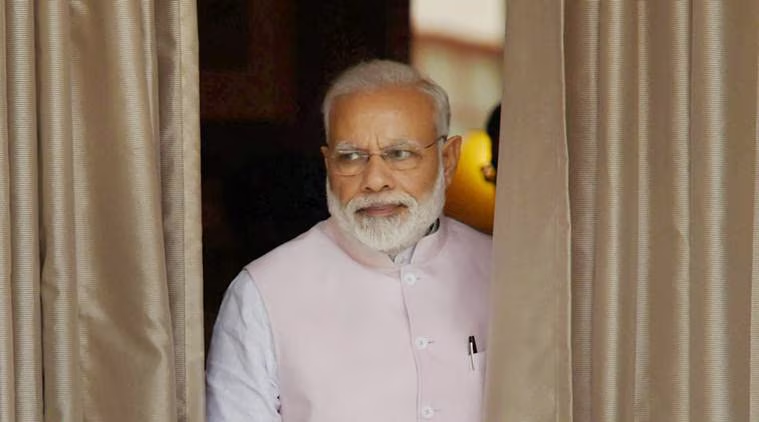Indian Prime Minister Narendra Modi is accused of using diversionary tactics to hold onto power and avoid dealing with domestic concerns since he joined office in 2014. India’s controlled mainstream media blames Pakistan for internal problems and portrays Pakistan as a terrorist state in front of Western powers.
It brings together Hindu nationalists, shifts attention from India’s difficulties in the economy or administration, and turns the national focus to security instead of well-being. It’s important to examine some of the main incidents to understand why the Modi government has reportedly turned to Pakistan as a political target.
On April 22, 2025, the Pahalgam incident was swiftly politicized by the Modi government, staging a false flag operation to get a response from Pakistan. India launched airstrikes and missile strikes against the sovereignty of Pakistan, instead of acting in a genuine way to handle terror. Later, it became clear that the move was meant to cover up the BJP’s troubles on many fronts, like the twin challenges.
Modi took advantage of the attack by stirring anti-Pakistan sentiments to distract attention from his government’s failures.
Similarly, the Pulwama attack in February 2019 showed how Modi used foreign policy issues to turn off voters’ attention. As usual, Jaish-e-Mohammad was accused, ignoring doubts about possible Indian intelligence failures. After Balakot, many called Modi’s military assault a clear and strong response. Given that weeks before the general elections, many wondered if this incident was somehow used to help a political party.
Read More: Terrorism and the Ballot: How Modi’s BJP Turns Tragedy Into Triumph
During their election rallies, BJP leaders kept talking about the airstrikes, helping to reinforce the idea of a ‘’tough leader against Pakistan.’’
Additionally, Modi alienated Jammu and Kashmir from its ruling autonomy in August 2019 through Article 370. Analysts say the decision was mainly designed to please the BJP’s Hindu nationalist base, without thinking about national security. The Modi administration used the claim that Kashmir is a battlefield between India and Pakistan to avoid talking about the slowing economy and increasing unemployment.
Furthermore, on 18 September 2016, an attack occurred in Uri, near the Line of Control (LoC). India immediately accused Pakistan of backing the militants even without evidence, and launched ‘’surgical strikes’’ on the LoC. The strikes received national attention and served as an election tool for political parties before state polls. Most television speeches, political campaigns, and social media featured passionate anti-Pakistan slogans.
As a result, while people were proud of their country, topics such as unemployment, rural hardships, and demonetization were pushed aside in public talks.
Meanwhile, Indian ex-Navy officer and RAW agent Kulbhushan Yadav has exposed Modi’s diversionary tactics and his facist face to the world. He stated that his job in Pakistan involved supporting terrorism through collaboration with Baloch insurgents. He acknowledged that he planned to interact with Baloch insurgents and cooperate with their goals. He shared that RAW was behind criminal and anti-Pakistan activities connected to the Baloch liberation movement in strategic areas such as Gawadar, Pasni, and Jewani.
Read More: Why India Cannot Replicate Israel
He disclosed that various operations supported by RAW resulted in the injury and death of Pakistani citizens. According to Jadav, he performed certain activities to destabilize Pakistan, and he made his confession freely, without feeling pressured.
Previously, Indian officials were cautious and balanced towards Pakistan, but under Modi, harmful comments frequently followed friendly meetings. Modi’s unexpected trip to Pakistan in 2015 and his meeting with Ex-Premier Pakistan Nawaz Sharif were followed by the attack at Pathankot in 2016, which led to a big drop in relations. The clear inconsistencies reveal that the BJP’s foreign policy is more about pleasing voters at home than working for real results abroad. Modi government always promotes rivalry with Pakistan rather working for the common regional challenges.
Therefore, Indian society, opposition parties, and observers from abroad have challenged the practices of the Modi government. They claim that these tactics weaken our democracy, diminish the role of minorities, and ignore real issues of governance. In addition, Modi needs to stop playing tactics, get over his RSS ideology, and stop blaming Pakistan. The Pahalgam attack exposed Modi’s true face and isolated him this time with no Western support.
In a nutshell, Modi’s diversionary tactics benefit the BJP’s government by blaming Pakistan and hiding its government failures and its true fascist face. The Pahalgam, Uri, Pulwama attacks, and the removal of Article 370 have played an effective role in changing the way people talk about politics. Talking about possible or actual threats to national security allows the Modi government to avoid being questioned about problems within the country.
Making such a decision for political reasons can produce fast results, but its long-term effects in the country and the region can be dangerous and intense. Sustainable governance depends on taking responsibility instead of diverting discussions, meaning a developed democracy shoulders responsibilities, and chooses peace over excitement from populist and anti-Pakistan rhetoric.
*The views expressed in this article are the author’s own and do not necessarily reflect the editorial policy of TDI

Owais Khan Marwat
Owais Khan Marwat was a Research Professional at the Institute of Strategic Studies Islamabad (ISSI). He graduated with a BS in International Relations from the University of Peshawar. He can be reached at owaiskhanmarwat07@gmail.com



